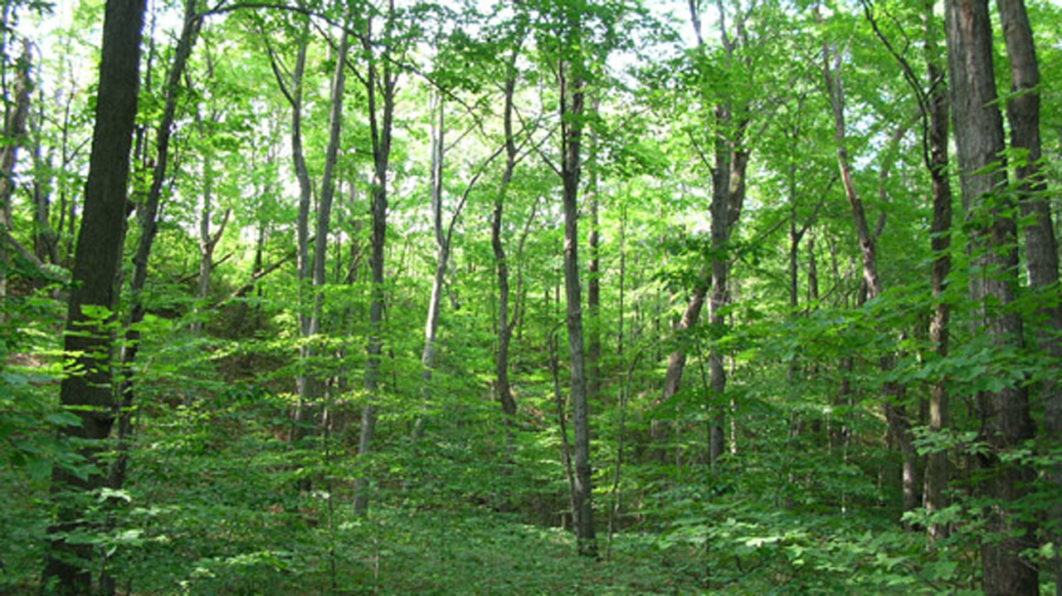
In the serenity of Dekina a small town where I grew up, our family house is by side of a major road that passes through the town. The road also leads to the local government Secretariat. From the house, when I was less than a teenager, from about 7.30 am, I used to see tens of workers trooping to work at the Local Government secretariat. In the moving crowd, a spectacular image is that of those elegantly dressed in green shirt, trouser and beret and well-polished black boots to match. They were and are still referred to as agoli, which literally mean tree or wood inspectors. I later came to know that officially they are called Forest Guards or Rangers.
The Rangers have authority over any standing plant except banana plants. Dekina local government had such smartly dressed and serious-looking Rangers as Mr John agoli, Mr Ameh agoli, Mall Abu agoli among others who took the task of overseeing the forest seriously. If anyone wants to test their dedication to duty, fell a tree without authorisation and worse still bring the planks to the side of a footpath, not highway, without a ranger’s stamp. The person would be told the full meaning of green uniform. That was the time the country had law and order, dedicated workers and thick vegetation with all the compliments of huge and aged trees towering over under growths and creeping stems. The forest of this type was a suitable abode for all creatures, the biodiversity.
Biodiversity is another word for all creatures, from the very minute and weak to the most visible and domineering that live on earth. These creatures include bacteria, warms, insects, reptiles, birds and animals. These are the constituents of the natural environment and are known for replenishing the forest and the soil while providing shelter and food security for one another. The complex relationship among the constituent parts under the cover of the forest is largely two ways. The big creatures capture the small ones for their meals. Big animals eat up small ones; Pythons swallow their victims as the big cat pieces their victims and eat raw. As the wilds eat, they trample upon and kill or destroy others including vegetation cover.
The vegetation cover such as shrubs, trees and grass that provide home to other creatures is hugely exploited by man. Human beings, including Nigerians, have combined intelligence and technology to capture, adopt and use forest resources. Man heavily depends on forest resources for food, survival and creation of own environment. Man takes construction materials from the forest, harvest fruits, fuel wood and planks from the forest. The same man strips land of vegetation cover for farming, settlement development, road and such other construction. For instance, the13,000 hectares of land that is devoted to large scale agriculture in Kwara state is completely stripped of vegetation cover and all biodiversity therein were dislodged. Even the small holder farmers across all geopolitical zones of Nigeria have no or have a few wild plants standing on the farms due to land clearing. The use of herbicides and insecticides further eliminate the other tenants. It is noteworthy that all constructions including farming destroy natural environment and devastate the forest and biodiversity.
The colonial government created forest reserves that hitherto conserve the biodiversity are currently under the axe and hoe of farmers, fuel wood cutters, charcoal makers and loggers. The huge heaps of fuel wood and piles of sacks of charcoal at several locations on the regional highways are from the forests. Don’t forget that bush meat such as rodents or reptiles is still a good delicacy in many Nigerian homes.
Forest harvest reduces forest thickness and tree densities, exposes the land to degradation and subsequently constraints food production, animal rearing and security. More precariously, is the induced migration of forest dwelling creatures from such zones of environmental degradation and increasing scarcity of basic forest resources.
The painful one is the cattle herder migration due to dwindled food supply to the animals as a result of environmental resources depletion. Man, this time Nigerians are the cause of biodiversity disappearance. Beyond imagination, grass and plant species have vanished. Iroko, mahogany, obeche trees have reduced in quantity and quality. Vultures that were common sites at abattoirs have left towns and villages. Worms, soldier ants, butterflies and species of moth have all yielded way for insecticides and herbicides.
Still, bush burning, discharge of toxic wastes into the environment as in Bayesa, as well as flooding and erosion, have all in no small way contributed to the growing annihilation of trees and grass species, birds, insects, warms, ants, reptiles and such others that have definite roles in keeping the natural balance on earth. All these are because the vandals and annihilators of other biodiversity species are at work. The production and consumption processes have continued to inflict injuries on the natural environment so much that water bodies, earth surfaces and the atmosphere have become precariously vandalised and polluted.
Various forms of degradation exist in Nigeria; desertification in the north, oil spillage in the south and over exploitation of forest resources across the country. All these are attributable to human activities that are have depleted the forest, its resources and the biodiversity. So, when the Ministry of Environment cries out on the continuous decrease in the number and types of forest and forest dwellers, we must listen, understand and act to reverse the situation. It is bad enough that carbon dioxide emitted by humans has lost its tenancy on plants and grass and has turned its anger on the world in the form of global warming and climate change.
Human beings and of course Nigerian, have not escaped the consequences of poor relationship with the environment. Coastal and gully erosion is in high tempo just as desertification, flood, global warming and climate change are continuously manifesting. These variously affect the lives of people through displacements, destruction of lives and properties, poor agricultural production and further loss of vast and diverse forest resources. Farmlands are completely striped of natural vegetation to the extent that medicinal plants and grass have been lost. Animals and birds have either been eaten or migrated.
The bare land is exposed to damage and the anger of climate change manifestations in terms of flood, whirlwind and erosion that in various ways destroy livelihoods and properties in high proportions. Today Nigerians are more threatened by the results of biodiversity depletion and consequences of climate change such poor soils and food security than can ever be imagined. The extravagant depletion of the forest and its inhabitants and the associated consequences are challenges to humanity. Why have we not paid attention to this or where have we lost it? As the world celebrates the Environment Day with a focus on Biodiversity, we have the opportunity to re-evaluate our relationship with the environment.
The destruction of the environment and its contents with reckless abandon under the nose of all agencies from federal, state to local governments require serious attention. Where are the laws from the colonial period to date? Where are the almighty Forest Rangers of the Native Authorities? What has become of our capacity and our stock of manpower to manage and monitor our forests, our biodiversity and environment? Nigeria must find answers to all these as we are under pressure to either change our ways or be vanquished by suffering the consequences of our environmental abuse and recklessness. To mediate the man-environment relationship, preserve the environment and protect the biodiversity, institutions like the Ministry of Environment and other departments and agencies were created.
The Ministries and Departments of Environment at Local Government, State and Federal levels must provide the answers and lead the way. The arrow head is the Federal Ministry of Environment; the Minister has to galvanise all available resources and mobilise all stakeholders to protect, police and regulate the use of our natural environment. The task is to regulate and limit the destructive annihilator of the shared heritage. This wise, the Ministry and agencies have tall tasks. The task of monitoring the ways Nigerians use every inch of our forest and land; the extraction of items of value from the forest by Nigerians and containing the prevailing excesses; restoring the environment and cultivating the biodiversity is certainly herculean. But the reserve army of unemployed graduates of environmental sciences, botany, plant science, horticulture and agronomy should be available for the task. Also, the local government Forest Guards require reorganisation and reinvigoration to meet the current responsibilities.
A combination of institutional empowerment, reorientation of Forest Guards and putting more hands on the job will go a long way in restoring the vegetation cover, stabilising forest growth and development, monitor use and bring forest and environmental abusers to book. When these are attained, Nigeria may begin to have an environment characterised by luxuriant forest and biodiversity of national pride. Such pride should bring us more money from eco-tourism. From the experience of an NGO, the Socioeconomic and Environment Advocacy Centre (SEA-C) with a farming community, policing and restoring the environment and nurturing biodiversity to make the world a liveable habitat require intensive and extensive outreach activities. It requires the mobilisation of grassroots stakeholders through outreach programmes.
The outreach is a platform for connecting all agencies and persons, spread ideas and techniques for Nigerians to appreciate the environment, change their attitudes and live peacefully with other creatures. The attainment of a sustainable environment where all creatures happily coexist in line with various provisions of Sustainable Development Goals requires that relevant institutions most especially the local government and other forestry departments, are firmed up to their responsibilities and the citizens are adequately mobilised. As for the Federal and State Ministries of Environment and other agencies, the ability to attain the ideals of liveable environment where all creatures, including humans, co-habit with others while incurring minimal damage to the symbiotic relationship lies in effective monitoring, protection and conservation. Effective and consistent advocacy is a veritable mediating activity with high potency to change attitudes to the forest.
Yunusa, executive director, Socioeconomic and Environment Advocacy Centre, wrote from Zaria






